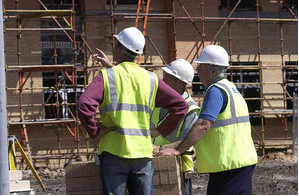The Scottish Government is investing £25 million next year in charitable bonds that could lead to up to 450 affordable homes being built, Social Justice Secretary Alex Neil has announced.
The money, from the UK Government’s ‘financial transactions’ funding, can only be used as loan and equity investment but, through a charitable bond model, the Scottish Government has pioneered an innovative way of creating grant to support affordable housing in Scotland.
The charitable bond enables the Government to make an ethical investment that brings forward future interest in an upfront donation for affordable housing by providing a loan to a social housing provider that is repaid in 10 years.
Through the bonds, £7.3 million of grant subsidy will be generated to deliver more than 125 social rented units, and £17.7 million of loan funding will be provided to support housing associations build over 300 social homes in Scotland.
The investment is part of a £200 million increase in next year’s Scottish Government housing supply budget.
That increase is forecast to support at least 6,500 jobs and lever in significant private investment to deliver £600 million of total investment.
Visiting an Edinburgh development by Castle Rock Edinvar Housing Association and Places for People, who were involved in the first Scottish Government charitable bond investment last year, Alex Neil said:
“In a fair and socially just society we want to make sure that everyone in Scotland has access to good quality housing that meets their needs.
“Charitable bonds represent the type of fresh thinking that is helping increase the supply of affordable homes and is supporting our construction industry.”
Heather Macnaughton, Head of Community Investment at Castle Rock Edinvar said: “We are delighted that there is further funding being made available to develop the use of the charitable bond model in Scotland, to increase finance available for affordable housing.
“Continued financial innovation by the sector is required to maximise the return on the Scottish Government’s investment and deliver housing that is affordable to everyone.”



